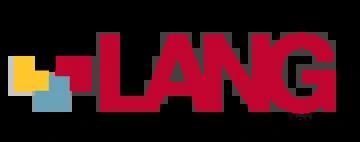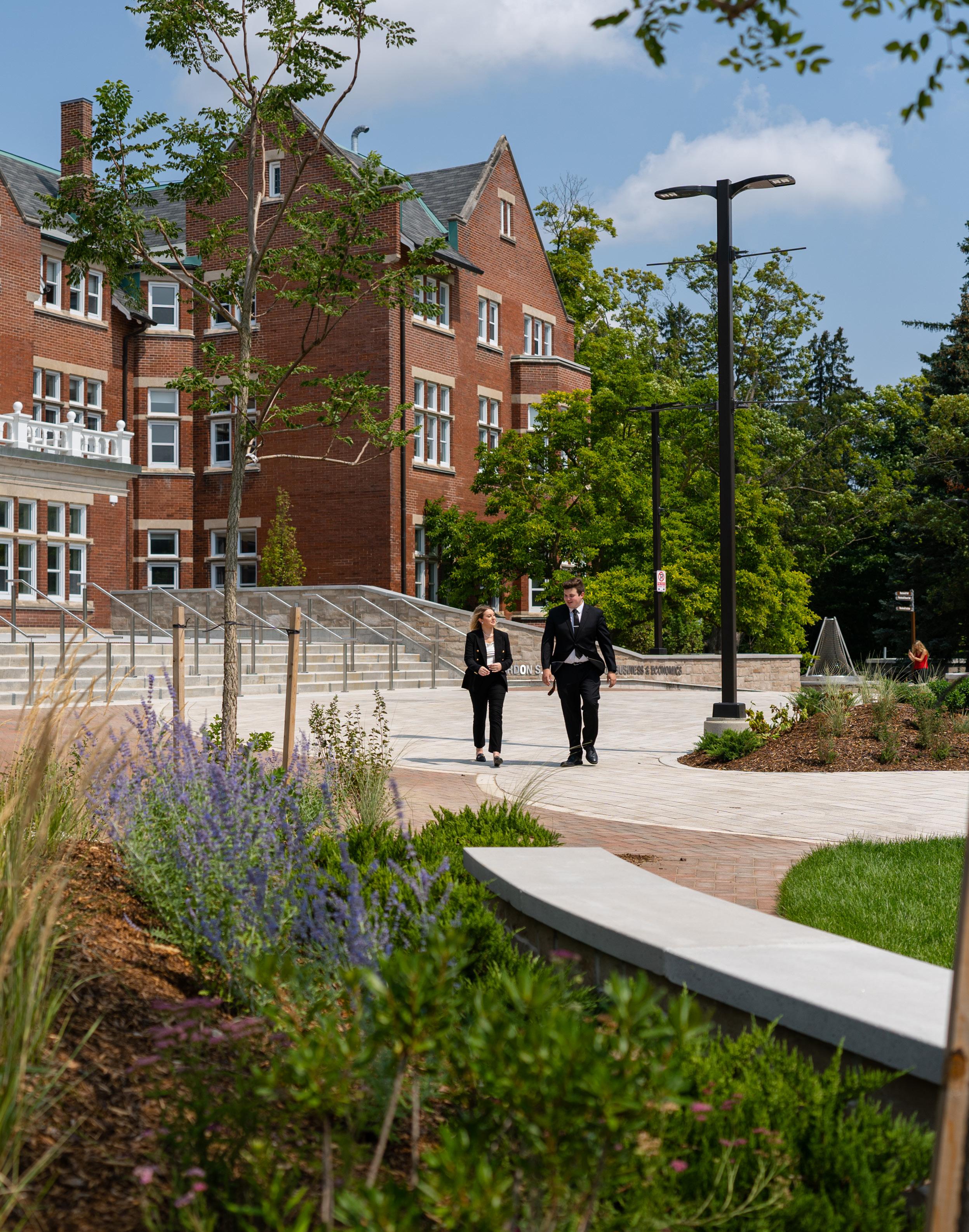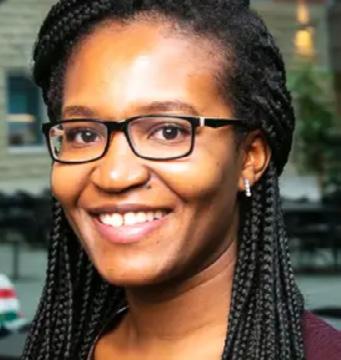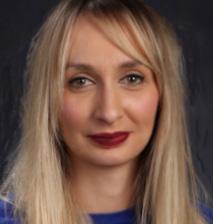Feature Story: Speaking of allergies: Communication challenges for restaurant staff and customers

Malika Khakhar, a PhD in Management student, in collaboration with researchers from the University of Calgary, was part of a team that analyzed how and why information about food allergies gets communicated, and miscommunicated, at restaurants. Their work was published in the International Journal of Hospitality Management in July 2021.
Public health researchers have called food allergies “a growing public health epidemic in Canada” affecting nearly one in 13 Canadians and one in five Canadian households. Dining out can be risky and stressful for people with allergies, in part because many restaurant employees lack the training, skills and confidence to manage food allergies safely and effectively.
In recent years, news outlets across Canada have reported several cases of people suffering extreme, sometimes fatal, allergic reactions to restaurant food. Accidents like these are most often due to miscommunication.
The research team analyzed how and why information about food allergies gets communicated, and miscommunicated, at restaurants. They approached allergy communication the way we might approach communication among a flight crew or a surgical team: by isolating the make-or-break behaviours in the communication process.
Based on this research, guidelines to reduce the risk of allergic reactions at restaurants and improve the customer experience were offered.
Full story available in The Conversation.
Gordon S. Lang School of Business & Economics Research Report 2021–2022
45
Bold = Lang faculty
Red = Lang graduate student
Blue = Post-doctoral fellow
BOOKS
2021
Saks, A. M., & Gruman, J. A. (2021). Advanced Introduction to Employee Engagement. Edward Elgar Publishing.
2022
Eaton, S. E., & Christensen Hughes, J. (2022). Academic integrity in Canada: An enduring and essential challenge.
Edelheim, J., Joppe, M., & Flaherty, J. (Eds.). (2022). Teaching Tourism. Cheltenham, UK: Edward Elgar Publishing.
Hoy, M., Livernois, J., McKenna, C., Rees, R., & Stengos, T. (2022). Mathematics for economics. MIT press.
Cooper, C., Romi, A. & Senkl, D. (2022). Accounting, sustainability and the feminine. C. Adams (ed.) Handbook of Accounting and Sustainability. Edward Elgar.
Burga, R., Rodriguez-Tejedo, I., & Naim Indrajaya, A. (2022). Critical Reflections on Innovative Flourishing Businesses in the context of the UN Sustainable Development Goals. University of Guelph
Barrad, S., Ghattas, P., Lowe, D., Saccucci, F., Qadri, H., (2022). Principles of Management Accounting.
McKenzie, B. (2022), “Shades of Dark Tourism: The Case of Bermuda”, The Dynamics of Caribbean Tourism: Opportunities, Challenges and a Re-imagined Future, editor Gaunette Sinclair-Maragh
McRoberts, S. (2022). O’Reilly, N., Seguin, B., Abeza, G., & Narraine, M. “Sport Marketing: A Canadian Perspective: 3rd Edition”, Human Kinetics Books, Canada.
BOOK CHAPTERS 2021
Arndt, F. (2021) Divine opportunities in environmental entrepreneurship. In Environmental Entrepreneurship: Theory and Practice
Arndt, F. (2021) Dynamic Capabilities and Innovation. In Innovation Management.
Arndt, F., Katic, M., Mistry, A., & Nafei, S. (2021). Dynamic capabilities of global value chains: From selection to deployment. In The Routledge Companion to Global Value Chains (pp. 23-34). Routledge.
Bhojani, Z., & Kurucz, E. C. (2021). Sustainable Happiness, Well-Being, and Mindfulness in the Workplace. In The Palgrave Handbook of Workplace Well-Being, 1085-1109.
Bravo Monge, C. (2021). High potential intrapreneurs development: An integrated approach for executive education in Latin American companies. In Innovations in Global Entrepreneurship Education.
Burga, R., & Rezania, D. (2021). Corporate Social Responsibility in Canada. In Current Global Practices of Corporate Social Responsibility (pp. 621-636). Springer, Cham.
Dewhirst, T., and Lee, W.B. (2021). The shifting landscape of sponsorship in Formula 1. In: Stephen Wagg, David Andrews, and Damion Sturm (eds.), Lives in the Fast Lane: Essays on the History and Politics of Motor Racing. Global Culture and Sport book series from Palgrave Publishers.
Dong, J. Y., Dubois, L. E., Joppe, M., & Foti, L. (2021). How Do Video Games Induce Us to Travel?: Exploring the Drivers, Mechanisms, and Limits of Video Game-Induced Tourism. In Audiovisual Tourism Promotion (pp. 153-172). Palgrave Macmillan, Singapore.
Gordon S. Lang School of Business & Economics Research Report 2021–2022
Publications
Flaherty, J. & Gallina, S., (2021). “University of Guelph’s School of Hospitality, Food and Tourism Management co-op program: Aiming for a transformative learning experience” In Ren, L., and McKercher, B. (Eds) (2021) Practical Learning in Hospitality Education. University of Queensland.
Jo, W. (2021). Casino Tourism. In J. Jafari & H. Xiao (eds.), Encyclopedia of Tourism, Springer.
Thomas-Francois, K., Shen, Y., & Joppe, M. (2021). “Grenada: A Vision of Integrated Technological Advancements to Build a Resilient Tourism Future Through Youth Involvement and Consumer-Centric Service Excellence,” Springer Books, in: Acolla Lewis-Cameron & Leslie-Ann Jordan & Sherma Roberts (ed.), Managing Crises in Tourism, chapter 0, pages 175-193, Springer.
Li, Y., Joppe, M. & Shen, Y. (2021). “Donkey Friends”: Motivations, Constraints and Negotiation Strategies of Chinese Backpackers” in O’Regan, M. (Ed.). Backpacking and beyond: Independent and nomadic travel, Channelview.
McKenzie, B. (2021), “Genocide Tourism”, in Encyclopedia of Tourism Management and Marketing, editor D. Buhalis, Edward Elgar Publishing, UK.
McKenzie, B. (2021), “Transition from Communism”, in Encyclopedia of Tourism Management and Marketing, editor D. Buhalis, Edward Elgar Publishing, UK.
McKenzie, B. (2021). Do you Believe? Online Reviews and Dark Tourism: A Sentiment Analysis Approach. In Handbook on Tourism and Social Media.
Mishra, S., Fogg, C., & Deminchuk, J. (2021). Competition and risk-taking. In S. Garcia, A. Tor, & A. Elliot (Eds.), Oxford Handbook on the Psychology of Competition. Oxford University Press.
Pegoraro, A., & Frederick, E. (2021). Social Media and Crisis Communication in Sport. In Social Media in Sport: Theory and Practice, 2, 345.
Shen, Y., & Joppe, M. (2021). 4 Gamification: Practices, Benefits and Challenges. In Gamification for Tourism (pp. 63-80). Channel View Publications.
Elliot, S. (2021). Finding flow in the travel experience. In Richard Sharpley (Ed) Routledge Handbook of the Tourist Experience, pg 101-112.
Elliot, S. (2021). Tourist Destination Image in A. Correia, S. Dolnicar (Eds) Women’s Voices in Tourism Research: Contributions to Knowledge - uq.pressbooks.pub, pg 173176.
Rezania D., Sasso T. (2021) Building Blocks of Coaching Project Managers. In: Machado C., Davim J.P. (eds) Coaching for Managers and Engineers. Management and Industrial Engineering. Springer, Cham.
Rezania D., Sasso T. (2021) Building Blocks of Coaching Project Managers. In: Machado C., Davim J.P. (eds) Coaching for Managers and Engineers. Management and Industrial Engineering (pp. 13-25). Springer, Cham.
Cooper, C., Romi, A. & Senkl, D. (2021). Accounting, sustainability and the feminine. In Adams, C. (eds), Handbook of Accounting and Sustainability. Edward Elgar: Cheltenham, UK.
van Duren, E. (2021). Cookbooks: Exploring Economic(s) Themes. In C. Prescott & M. Thompson (Eds.), A Taste of Backstories: The Kitchen Table Talk Cookbook (pp. 43-60). Digital Press, University of North Dakota.
Hughes, J. C., & Christensen, J. D. (2021). Talent Management Innovation in a Time of Unprecedented Disruption: Implications for Practice and Research. In Talent Management Innovations in the International Hospitality Industry. Emerald Publishing Limited.
Moeke-Pickering, T., Rowat, J.*, Cote-Meek, S., and Pegoraro, A. (2021) Indigenous social activism using Twitter: Amplifying voices using #MMIWG in Berglund, J. & Carlson, B. eds Indigenous Peoples Rise Up: the Global Ascendancy of Social Media Activism (pp. 79-85) NJ: Rutgers University Press
Pegoraro, A. and Lebel, K. (2021) Social Media and Sport Marketing in Butterworth, M. (Ed) Handbook of Communication and Sport, (pp. 636-650) Mouton de Gruyter
Gordon S. Lang School of Business & Economics Research Report 2021–2022
47
Darvin, and Pegoraro, A. (2021) Ethical Relativism and Sport Mega-Event Gendered Discourses: Uneasiness towards the Dominant Play of Women in Sport, Dashper, K. (Ed.) Sport, Gender and Mega-Events (Emerald Studies in Sport and Gender), (pp. 57-70) Emerald Publishing Limited.
Mallen, C., Triantafyllidis, S., & McRoberts, S. (2021). Chapter 10: Vision of the future of sport and sustainable development. In S. Triantafyllidis & C. Mallen (Co-Editors). Sport and Sustainable Development: An Introduction. London: Routledge.
2022
Kennedy, H., Gonzales, J., & Pegoraro, A. (2022). The Rise of Digital Sport Fandom. In Routledge Handbook of Sport Fans and Fandom.
Joppe, M., Johan, E., Flaherty, J., Bommenel, E., Blanca,C., Helene Balslev Clausen, Crossley, E., et al. “Professionalism.” In Teaching Tourism. Edward Elgar Publishing, 2022. See chapter 7 and 12
Lassou, P. & Neiterman, D. (2022). “Effectiveness of anti-corruption agencies in Africa”. In Brivot, M. & Cho, C. (Eds). Research Handbook on Accounting and Ethics. Edward Elgar Publishing, Cheltenham.
Wong, A., Kim, S., Lee, S., & Elliot, S. (2022). An application of Delphi method and analytic hierarchy process in understanding hotel corporate social responsibility performance scale. In H. Han (Ed.), Sustainable consumer behaviour and the environment, 133-159. New York: Routledge.
Dewhirst, T., and Lee, W.B. (2022). The shifting landscape of sponsorship in Formula 1. In: Stephen Wagg, David Andrews, and Damion Sturm (eds.), Lives in the Fast Lane: Essays on the History and Politics of Motor Racing, the Global Culture and Sport book series from Palgrave Publishers.
Dewhirst, T. (2022). Location, location, location of the Formula 1 race calendar: The geopolitics of money versus morals. In: Simon Chadwick, Paul Widdop, and Michael Goldman (eds.), Geopolitical Economy of Sport: Pivotal Moments in a New Era from Routledge.
McRoberts, S. (2022). Expert’s view. In Mallen, C., & Dingle, G. Chapter 8. The ecological perspective of sport and sustainable development. In S. Triantafyllidis & Mallen (Co-Editors) Sport and Sustainable Development: An Introduction. London: Routledge.
Dhaliwal, S. (2022). Canadian Income Tax Planning and Decision Making, In McGraw Hill Canadian Income Taxation (2022-23 Edition).
PEER-REVIEWED JOURNAL ARTICLES
2021
Al Hadwera, A., Tavana, M., Gillis, D., & Rezania, D. (2021). A Systematic Review of Organizational Factors Impacting Cloud-based Technology Adoption Using TechnologyOrganization-Environment Framework. Internet of Things, 100407.
Anglin, P., Cui, J., Gao, Y., & Zhang, L. (2021). Analyst Forecasts during the COVID-19 Pandemic: Evidence from REITs. Journal of Risk and Financial Management, 14(10), 457.
Anglin, P., Deng, X., Gao, Y., Sun, H. (2021). How do the political leanings of a CEO affect a REIT’s operational decisions?, Journal of Real Estate Research.
Anglin, P., Gao, Y. (2021). Value of communication and social media: An equilibrium theory of messaging, Journal of Real Estate Finance and Economics.
Annen, K., & Knack, S. (2021). Better policies from policyselective aid?. The World Bank Economic Review, 35(4), 829-844.
Arndt, F., Ng, W., & Huang, T. (2021). DIY Laboratories, Communities of Practice, and Open Innovation in a Digitalized Environment. Technology Analysis & Strategic Management.
Aung, M., Zhang, X., Wang, J. (2021). Navigating the Field of Contemporary Political Consumerism: Consumer Boycott and Consumer Buycott Vistas. Journal of Marketing Development and Competitiveness.
Ayoobzadeh, M., Schweitzer, L., & Lyons, S. (2021). Career Expectations of International and Domestic Students in Canada. International Journal for Educational and Vocational Guidance.
Gordon S. Lang School of Business & Economics Research Report 2021–2022
Bains, K., DeMarco, N., Brauer, P., & Yi, S. (2021). PostSecondary Food Service Manager Perspectives on Fruit and Vegetable Nudging Strategies: Qualitative Study. Current developments in nutrition, 5(9).
Baker, R. (2021). An Approach to Integrating Historical Perspective into an Undergraduate Accounting Course. Journal of Accounting Institute, 64, 85-91.
Bandi, F., Maynard, A., Moon, H. R., & Perron, B. (2021). Special Issue: Celebrated Econometricians: Peter Phillips. Econometrics, 9(3), 29.
Bernardo, G., Brunetti, I., Pinar, M., & Stengos, T. (2021). Measuring the presence of organized crime across Italian provinces: a sensitivity analysis. European Journal of Law and Economics, 51(1), 31-95.
Bies, R. J., Tripp, T. M., & Barclay, L. J. (2021). Second Acts and Second Chances: The Bumpy Road to Redemption. Journal of Management Inquiry, 30(4), 371–384.
Bors, Máté, Li, D., Sun, Y. (2021). “Is the Yardstick ratio a “good yardstick” for stock market valuations?,” Economics Bulletin 41(3), 1444-1450.
Cellarier, L. L. (2021). Is landownership a ladder out of poverty? World Development, 146, 105552.
Charbonneau, B. D., Powell, D. M., Spence, J. R., & Lyons, S. T. (2021). Unintended consequences of interview faking: Impact on perceived fit and affective outcomes. Personnel Assessment and Decisions, 7(1), 6.
Charlebois, S., Bowdridge, E., Lemieux, J. L., Somogyi, S., & Music, J. (2021). Supply Management 2.0: A Policy Assessment and a Possible Roadmap for the Canadian Dairy Sector. Foods, 10(5), 964.
Charlebois, S., Smook, M., Wambui, B. N., Somogyi, S., Racey, M., Fiander, D., ... & Caron, I. (2021). Can Canadians afford the new Canada’s Food Guide? Assessing Barriers and Challenges. Journal of Food Research, 10(6), 1-22.
Chen, A., Li, H., & Schultze, M. B. (2021). Tail indexlinked annuity: A longevity risk sharing retirement plan. Scandinavian Actuarial Journal, 1-26.
Chen, C., Pinar, M., & Stengos, T. (2021). Determinants of renewable energy consumption: Importance of democratic institutions. Renewable Energy, 179, 75-83.
Chhinzer, N., & Oh, J. (2021). Employer perspectives on workforce integration of self-initiated expatriates in Canada. Education+ Training.
Choi, E., Farb, N., Pogrebtsova, E., Gruman, J., & Grossmann, I. (2021). What do people mean when they talk about mindfulness?. Clinical Psychology Review, 102085.
Choi, E., Gruman, J. A., & Leonard, C. M. (2021). A balanced view of mindfulness at work. Organizational Psychology Review.
Chowhan, J., MacDonald, K., Mann, S., and Cooke, G.B. (2021). Telework in Canada: Who is working at home during the COVID-19 pandemic? Relations Industrielles/ Industrial Relations.
Christofides, L. N. (2021). Edging towards a national minimum wage? Initial context, recent developments and the road ahead. Cyprus Economic Policy Review, 15(2), 1-25.
Christofides, L. N., Hoy, M., Milla, J., & Stengos, T. (2021). Vietnam Era Fathers: The Intergenerational Transmission of Tertiary Education. Review of Income and Wealth.
Clayton, J., Devine, A., & Holtermans, R. (2021). Beyond building certification: The impact of environmental interventions on commercial real estate operations. Energy Economics, 93(C).
Cooke, G. B., Chowhan, J., McDonald, K., and Mann, S.L. (2021). Talent Management: Four ‘Buying versus Making’ Talent Development Approaches. Personnel Review.
Cowley, T., Frost, L., Inwood, K., Kippen, R., MaxwellStewart, H., Schwarz, M., ... & Wilson, P. (2021). Reconstructing a longitudinal dataset for Tasmania. Historical Life Course Studies, 11(2), 1-30.
Darvin, L., Mumcu, C., & Pegoraro, A. (2021). When virtual spaces meet the limitations of traditional sport: Gender stereotyping in NBA2K. Computers in Human Behavior, 122, 106844.
Li, H., Sun, Y. (2021) The Impact of Uncertainty on Investment: Empirical Challenges and a New Estimator.
Deniz, P., Stengos, T., & Yazgan, M. (2021). Revisiting the link between output growth and volatility: panel GARCH analysis. Empirical Economics, 61(2), 743-771.
Gordon S. Lang School of Business & Economics Research Report 2021–2022
49
Dewhirst, T. (2021). ‘Beyond nicotine’ marketing strategies: Big Tobacco diversification into the vaping and cannabis product sector. Tobacco Control.
Dewhirst, T. (2021). Co-optation of harm reduction by Big Tobacco. Tobacco Control.
Dewhirst, T. (2021). Natural American Spirit cigarettes are marketed as ‘made different’: The role of brand positioning and differentiation. Tobacco Control.
Dewhirst, T. (2021). The interplay of food and tobacco product descriptors and health claims. Tobacco Control.
Eddy, T., Cork, B. C., Lebel, K., & Hickey, E. H. (2021). Examining Engagement With Sport Sponsor Activations on Twitter. International Journal of Sport Communication, 14(1), 79-108.
Erdemlioglu D., Gradojevic N. (2021), Heterogeneous investment horizons, risk regimes and realized jumps, International Journal of Finance and Economics 26 (1), 617-643.
Eshghi, K., & Ray, S. (2021). Conflict and performance in channels: a meta-analysis. Journal of the Academy of Marketing Science, 49(2), 327-349.
Frederick, E., Pegoraro, A., & Sanderson, J. (2021). Sport in the Age of Trump: An Analysis of Donald Trump’s Tweets. International Journal of Sport Communication, 1(aop), 1-23.
Frederick, E., Pegoraro, A., & Smith, L. R. (2021). An examination of Michigan State University’s image repair via Facebook and the public response following the Larry Nassar scandal. Communication & Sport, 9(1), 128-149.
Frederick, E., Pegoraro, A., and Sanderson, J. (2021) Sport in the Age of Trump: An Analysis of Donald Trump’s Tweets International. Journal of Sport Communication.
Gatto, L. E., Pearce, H., Plesca, M., & Antonie, L. (2021). Students with Disabilities: Relationship between Participation Rates and Perceptions of Work-Integrated Learning by Disability Type. International Journal of WorkIntegrated Learning, 22(3), 287-306.
Genc, T. S. (2021). Implementing the United Nations sustainable development Goals to supply chains with behavioral consumers. Annals of Operations Research, 1-32.
Genc, T. S., & De Giovanni, P. (2021). Dynamic pricing and green investments under conscious, emotional, and rational consumers. Cleaner and Responsible Consumption, 2, 100007.
Genc, T., & De Giovanni, P. (2021). Trade-in and save: A two-period closed-loop supply chain game with price and technology dependent returns (vol 183 B, 514, 2017). International Journal of Production Economics, 233.
Ghattas, P., Soobaroyen, T., & Marnet, O. (2021). Charting the development of the Egyptian accounting profession (1946–2016): An analysis of the State-Profession dynamics. Critical Perspectives on Accounting, 78, 102159.
Ghotbi, S., Dhar, T., & Weinberg, C. B. (2021). Do Consumers Order More Calories in a Meal with a Diet or Regular Soft Drink? An Empirical Investigation Using Large-Scale Field Data. Journal of Public Policy & Marketing, 40(4), 521-537.
Godfrey, B., Homer, C., Inwood, K., Maxwell-Stewart, H., Reed, R., & Tuffin, R. (2021). Crime, Penal Transportation, and Digital Methodologies. Journal of World History, 32(2), 241-260.
Gonsalves, C. A., McGannon, K. R., & Pegoraro, A. (2021). A critical discourse analysis of gendered cardiovascular disease meanings of the# MoreMoments campaign on Twitter. Journal of health psychology, 26(10), 1471-1481.
Gradojevic N. (2021), Brexit and foreign exchange market expectations: Could it have been predicted? Annals of Operations Research 297, 167-189.
Gradojevic, N., & Tsiakas, I. (2021). Volatility cascades in cryptocurrency trading. Journal of Empirical Finance, 62, 252-265.
Gradojevic, N., Kukolj, D., Adcock, R., & Djakovic, V. (2021). Forecasting Bitcoin with technical analysis: A notso-random forest?. International Journal of Forecasting.
Grogan, L. (2021). Civil war, famine and the persistence of human capital: Evidence from Tajikistan. Comparative Economic Studies, 63(4), 577-602.
Grogan, L., & Moers, L. (2021). Incomes and Child Health in Sub-Saharan Africa, 1990–2018. Journal of African Economies, 30(4), 301-323.
Gordon S. Lang School of Business & Economics Research Report 2021–2022
Hayes, L., & Boritz, J. E. (2021). Classifying Restatements: An Application of Machine Learning and Textual Analytics. Journal of Information Systems, 35(3), 107-131.
Holmes, M. R., Dodds, R., & Frochot, I. (2021). At home or abroad, does our behavior change? Examining how everyday behavior influences sustainable travel behavior and tourist clusters. Journal of Travel Research, 60(1), 102116.
Holmes, M. R., McAdams, B., Gibbs, C., & D’Angelo, A. (2021). Is the foodservice industry perceived as being palatable by those looking to enter it?. Journal of Foodservice Business Research, 1-20.
Hou, Z., Liang, L. J., Meng, B., & Choi, H. C. (2021). The Role of Perceived Quality on High-Speed Railway Tourists’ Behavioral Intention: An Application of the Extended Theory of Planned Behavior. Sustainability, 13(22), 12386.
Huang, S., & Yi, S. (2021). Exploring creative tourist experience: A text-mining approach based on TripAdvisor reviews of a cooking workshop in Lisbon, Portugal. Journal of Tourism and Development, 36(1), 135-148.
Huang, S., Choi, H. C., Shen, Y., & Chang, H. S. (2021). Predicting Behavioral Intention: The Mechanism from Pretrip to Posttrip. Tourism Analysis, 26(4), 279-292.
Huddleston, D., Liu, F., & Stentoft, L. (2021). Intraday Market Predictability: A Machine Learning Approach, Journal of Financial Econometrics.
Inwood, K. (2021). Report of the Editor for 2020. Australian Economic History Review, 61(1), 2-9.
Inwood, K., & Maxwell-Stewart, H. (2021). Historical Databases Now and in the Future. Historical Life Course Studies, 10, 9-12.
Islam, T., Meade, N., & Sood, A. (2021). Timing Market Entry: The Mediation Effect of Market Potential. Journal of International Marketing, 1, 15.
Jingen Liang, L., & Elliot, S. (2021). A systematic review of augmented reality tourism research: What is now and what is next? Tourism and Hospitality Research, 21(1), 15–30.
Jones, G. J., Taylor, E., Wegner, C., Lopez, C., Kennedy, H., & Pizzo, A. (2021). Cultivating “safe spaces” through a community sport-for-development (SFD) event: implications for acculturation. Sport Management Review, 24(2), 226-249.
Jones, G. J., Taylor, E., Wegner, C., Lopez, C., Kennedy, H., & Pizzo, A. (2021). Examining the Efficacy of a Government-Led Sport for Development and Peace Event. Journal of Sport Management, 36(1), 56-67.
Kennedy, H., Kunkel, T., & Funk, D. C. (2021). Using predictive analytics to measure effectiveness of social media engagement: A digital measurement perspective. Sport Marketing Quarterly, 30(4), 265-277.
Kirkegaard, R. (2021). Ranking reversals in asymmetric auctions. Journal of Mathematical Economics, 102478.
Kourtellos, A., Stengos, T., & Sun, Y. (2021). Endogeneity in Semiparametric Threshold Regression. Econometrics Theory.
LaPlante, G., Andrekovic, S., Young, R. G., Kelly, J. M., Bennett, N., Currie, E. J., & Hanner, R. H. (2021). Canadian Greenhouse Operations and Their Potential to Enhance Domestic Food Security. Agronomy, 11(6), 1229.
Lassou, P. J., Hopper, T., & Ntim, C. (2021). Accounting and development in Africa. Critical Perspectives on Accounting, 78.
Lassou, P. J., Hopper, T., & Soobaroyen, T. (2021). Financial controls to control corruption in an African country: Insider experts within an enabling environment. Financial Accountability & Management, 37(2), 107-123.
Lassou, P.J.C., Hopper, T. and Ntim, C. (2021). How the colonial legacy frames state audit institutions in Benin that fail to curb corruption. Critical Perspectives on Accounting, 78, 1-23.
Lebel, K., Mumcu, C., Pegoraro, A., LaVoi, N. M., Lough, N., & Antunovic, D. (2021). Re-thinking Women’s Sport Research: Looking in the Mirror and Reflecting Forward. Frontiers in Sports and Active Living, 3.
Lee, S., Baumgartner, H., & Pieters, R. (2021). A Triadic Model of Social Motivations in Pay-What-You-Want Decisions. Journal of the Association for Consumer Research, 6(1), 105-119.
Lento, C., & Gradojevic, N. (2021). S&P 500 Index Price Spillovers around the COVID-19 Market Meltdown. Journal of Risk and Financial Management, 14(7), 330.
Lever, M. W., Elliot, S., & Joppe, M. (2021). Exploring destination advocacy behavior in a virtual travel community. Journal of Travel & Tourism Marketing, 38(5), 431-443.
Gordon S. Lang School of Business & Economics Research Report 2021–2022
51
Li, D., Bors, M., Sun, Y. (2021) Is the Yardstick ratio a good yardstick for stock market valuations? Economics Bulletin, 41(3), pp.1444-1450.
Li, H., & Shi, Y. (2021). A new unique information share measure with applications on cross-listed Chinese banks. Journal of Banking & Finance, 128, 106141.
Li, H., & Shi, Y. (2021). Forecasting mortality with international linkages: A global vector-autoregression approach. Insurance: Mathematics and Economics, 100, 59-75.
Li, H., & Shi, Y. (2021). Mortality forecasting with an agecoherent sparse VAR model. Risks, 9(2), 35.
Li, H., Lu, Y., & Lyu, P. (2021). Coherent mortality forecasting for less developed countries. Risks, 9(9), 151.
Li, H., Porth, L., Tan, K. S., & Zhu, W. (2021). Improved index insurance design and yield estimation using a dynamic factor forecasting approach. Insurance: Mathematics and Economics, 96, 208-221.
Li, H., Song, Q., & Su, J. (2021). Robust estimates of insurance misrepresentation through kernel quantile regression mixtures. Journal of Risk and Insurance, 88(3), 625-663.
Li, H., Tan, K. S., Tuljapurkar, S., & Zhu, W. (2021). Gompertz law revisited: Forecasting mortality with a multifactor exponential model. Insurance: Mathematics and Economics, 99, 268-281.
Li, M., Milne, F., & Qiu, J. (2021). Central bank screening, Moral hazard, and the lender of last resort policy. Journal of Banking Regulation, 1-21.
Li, T., Desmond, A. F., & Stengos, T. (2021). Dimension Reduction via Penalized GLMs for Non-Gaussian Response: Application to Stock Market Volatility. Journal of Risk and Financial Management, 14(12), 583.
Lin, Y., & Pazgal, A. (2021). Taking marketing strategy risks with seemingly no expected gains. Marketing Letters, 1-15.
Lin, Y., Pazgal, A., & Soberman, D. A. (2021). Who is the winner in an industry of innovation?. International Journal of Research in Marketing, 38(1), 50-69.
Lin, Y., Wang, X., & Dhar, T. (2021). Impact of Information on Food Stocking during Early Period of COVID-19 Outbreak: Survey Exploration between Canada and US Consumers. International Business Research, 14(2), 1-72.
Liu, F., & Stentoft, L. (2021). Regulatory Capital and Incentives for Risk Model Choice under Basel 3. Journal of Financial Econometrics, 19(1), 53-96.
Lopez, C., Pizzo, A. D., Gupta, K., Kennedy, H., & Funk, D. C. (2021). Corporate growth strategies in an era of digitalization: A network analysis of the national basketball association’s 2K league sponsors. Journal of Business Research, 133, 208-217.
Lu, J., & Wang, J. (2021). Corporate governance, law, culture, environmental performance and CSR disclosure: A global perspective. Journal of International Financial Markets, Institutions and Money, 70(C).
Lu, J., Mahmoudian, F., Yu, D., Nazari, J. A., & Herremans, I. M. (2021). Board interlocks, absorptive capacity, and environmental performance. Business Strategy and the Environment, 30(8), 3425-3443.
Fereshteh, M., Lu, J., Yu, D., Nazari, J., & Herremans, I. (2021). “Inter-and intra-organizational stakeholder arrangements in carbon management accounting.” The British Accounting Review 53, no. 1 .
Maraz, A., Katzinger, E., Yi, S. (2021). Potentially addictive behaviours increase during the first six months of the Covid-19 pandemic. Journal of Behavioral Addictions, Volume 10, Issue 4, 912–919.
McAdams, B., Elliot, S., & LeBlanc, J. E. (2021). Drive by My Cellar Door: Rethinking the Benefits of Wine Tourism in Niagara. Tourism Analysis, 26(2-3), 225-236.
McKenzie, B. (2021). From communism to capitalism: Tallinna Kaubamaja–Estonia’s department store. History of Retailing and Consumption, 1-22.
Meade, N., & Islam, T. (2021). Modelling and forecasting national introduction times for successive generations of mobile telephony. Telecommunications Policy, 45(3), 102088.
Mir, F. A., & Rezania, D. (2021). From interactive control to IT project performance: examining the mediating role of stakeholder analysis effectiveness. Journal of Accounting & Organizational Change.
Gordon S. Lang School of Business & Economics Research Report 2021–2022
Mir, F.A., Rezania, D. (2021) The Interactive Use of Management Control Systems and Information Technology Project Performance: A Conceptual Framework. Accounting Perspectives.
Murray, W. C. (2021). Understanding the preferred job rewards in the Canadian lodging sector. Journal of Human Resources in Hospitality & Tourism, 20(1), 101-126.
Murray, W.C.; Holmes, M.R. (2021). Impacts of Employee Empowerment and Organizational Commitment on Workforce Sustainability. Sustainability. 13 (6), 3163
Naraine, M. L., Pegoraro, A., & Wear, H. (2021). # WeTheNorth: Examining an online brand community through a professional sport organization’s hashtag marketing campaign. Communication & Sport, 9(4), 625645.
Oh, J. and Chhinzer, N. (2021), “Is turnover contagious? The impact of transformational leadership and collective turnover on employee turnover decisions”, Leadership & Organization Development Journal, Vol. 42 No. 7, pp. 1089-1103.
Pegoraro, A., & Taylor, T. (2021). Women’s Professional Sport: Understanding Distinctiveness. Frontiers in Sports and Active Living, 3.
Pegoraro, A., Kennedy, H., Agha, N., Brown, N., & Berri, D. (2021). An analysis of broadcasting media using social media engagement in the WNBA. Frontiers in Sports and Active Living, 3.
Pinar, M., & Stengos, T. (2021). Democracy in the neighborhood and foreign direct investment. Review of Development Economics, 25(1), 449-477.
Polemis, M., Stengos, T., Tzeremes, P., & Tzeremes, N. (2021). Quantile eco-efficiency estimation and convergence: A nonparametric frontier approach. Economics Letters, 202(C).
Rastegar, N., Flaherty, J., Liang, L.L. and Choi, H. C. (2021). The adoption of self-service kiosks in quickservice restaurants. European Journal of Tourism Research 27, 2709.
Rodenburg, K., & MacDonald, K. (2021). Enhancing Business Schools’ Pedagogy on Sustainable Business Practices and Ethical Decision-Making. Sustainability, 13(10), 5527.
Rodenburg, K., De Silva, V., & Christensen Hughes, J. (2021). SDGs: A Responsible Research Assessment Tool toward Impactful Business Research. Sustainability, 13(24), 14019.
Rodenburg, K., Hayes, L., Foti, L., & Pegoraro, A. (2021). Responsible Leadership in Sport: An Ethical Dilemma. Societies, 11(3), 85.
Rodenburg, K., Rizwan, T., Liu, R., & Christensen Hughes, J. (2021). Enhancing the Positive Impact Rating: A New Business School Rating in Support of a Sustainable Future. Sustainability, 13(12), 6519.
Rotella, A., Sparks, A. M., Mishra, S., & Barclay, P. (2021). No effect of ‘watching eyes’: An attempted replication and extension investigating individual differences. PLoS ONE, 16(10).
Saks, A. M., & Gruman, J. A. (2021). How do you socialize newcomers during a pandemic?. Industrial and Organizational Psychology, 14(1-2), 217-220.
Saks, A., Gruman, J., & Zhang, Q. (2021). Organization engagement: A review and comparision with job engagement. Journal of Organizational Effectiveness: People and Performance.
Saldanha, M. F., & Barclay, L. J. (2021). Finding meaning in unfair experiences: Using expressive writing to foster resilience and positive outcomes. Applied Psychology: Health and Well-Being, 13, 887-905.
Salter, N. P., & Sasso, T. (2021). The positive experiences associated with coming out at work. Equality, Diversity and Inclusion: An International Journal.
Shen, Y., Huang, S., Choi, H. S. C., & Morrison, A. M. (2021). Does brand love matter to casual restaurants? A multi-group path analysis. Journal of Hospitality Marketing & Management, 1-25.
Stengos, T. (2021). Recent Developments in Cryptocurrency Markets: Co-Movements, Spillovers and Forecasting. Journal of Risk and Financial Management, 14(3), 1-3.
Szto, C., Pegoraro, A., Morris, E., Desrochers, M., Emard, K., Galas, K., ... & Richards, K. (2021). # ForTheGame: Social Change and the Struggle to Professionalize Women’s Ice Hockey. Sociology of Sport Journal, 1(aop), 1-10.
Gordon S. Lang School of Business & Economics Research Report 2021–2022
53
Talebi, A., Rezania, D., & Bragues, G. (2021) Value creation in public procurement of innovation: a case of engaging start-ups by a local government, Local Government Studies
Teng, L., Xie, C., Liu, T., Wang, F., & Foti, L. (2021). The effects of uppercase vs. lowercase letters on consumers’ perceptions and brand attitudes. Journal of Business Research, 136, 164-175.
Tetzlaff, E. J., Goggins, K. A., Pegoraro, A. L., Dorman, S. C., Pakalnis, V., & Eger, T. R. (2021). Safety culture: a retrospective analysis of occupational health and safety mining reports. Safety and health at work, 12(2), 201-208.
Thomas-Francois, K., & Somogyi, S. (2021). Affective adoption of new grocery shopping modes through cultural change acceptance, consumer learning, and other means of persuasion. International Journal of Electronic Marketing and Retailing, 12(4), 323-338.
Thomas-Francois, K., & Somogyi, S. (2021). Consumers’ intention to adopt virtual grocery shopping: do technological readiness and the optimisation of consumer learning matter?. International Journal of Retail & Distribution Management.
Toffoletti, K., Pegoraro, A., & Comeau, G. S. (2021). Selfrepresentations of women’s sport fandom on Instagram at the 2015 FIFA Women’s World Cup. Communication & Sport, 9(5), 695-717.
Tsiakas, I., & Zhang, H. (2021). Economic fundamentals and the long-run correlation between exchange rates and commodities. Global Finance Journal, 100649.
Varty, C. T., Barclay, L. J., & Brady, D. L. (2021). Beyond adherence to justice rules: How and when manager gender contributes to diminished legitimacy in the aftermath of unfair situations. Journal of Organizational Behavior, 42, 767-784.
Wan, Z. Huang, S. and Choi, HSC (2021). Modification and validation of the travel safety attitude scale (TSAS) in international tourism: A reflective-formative approach. Journal of Hospitality and Tourism Insights
Wang, O., Somogyi, S., & Ablett, R. (2021). The influences of quality attributes and socio-demographics on Chinese consumers’ general and online consumptions of Canadian, US and Australian lobsters. British Food Journal.
Wick, S. (2021). Subjectivity in Performance Evaluations: A Review of the Literature. Accounting Perspectives, 20(4), 653-685
Wong, A. K. F., Kim, S., Lee, S., & Elliot, S. (2021). An application of Delphi method and analytic hierarchy process in understanding hotel corporate social responsibility performance scale. Journal of Sustainable Tourism, 29(7), 1153-1179.
Wuth, A., Mishra, S., Beshai, S., & Feeney, J. (2021). Experiences of developmental unpredictability and harshness predict adult cognition: an examination of maladaptive schemas, positive schemas, and cognitive distortions. Current psychology, 1-11.
Yan, G., Pegoraro, A., & Watanabe, N. M. (2021). Examining IRA bots in the NFL anthem protest: Political agendas and practices of digital gatekeeping. Communication & Sport, 9(1), 88-109.
Zhang, Y., De Zoysa, A., & Jagoda, K. (2021). The influence of second language learning motivation on students’ understandability of textbooks. Accounting Research Journal.
Zhou, P., Arndt, F., Jiang, K., & Dai, W. (2021). Looking backward and forward: Political links and environmental corporate social responsibility in China. Journal of Business Ethics, 169(4), 631-649.
Zhu, W., Tan, K.S., Porth, L. (2021) Reply to Hans U. Gerber and Elias S. W. Shiu on Their Discussion on Our Paper Entitled “Agricultural Insurance Ratemaking: Development of a New Premium Principle”, North American Actuarial Journal, 25(3), 466-467.
Zhu, W., Tan, K.S., Porth, L. (2021) Reply to Abylay Zhexembay on the Discussion on Our Paper Entitled “Agricultural Insurance Ratemaking: Development of a New Premium Principle”, North American Actuarial Journal, 25(3), 472.
Gordon S. Lang School of Business & Economics Research Report 2021–2022
2022
Baker, R. (2022). Government Accounting in Canada: A Special Issue. Canadian Journal of Administrative Sciences.
Baker, R. (2022). Accounts from the Backwoods: The role of accounting in an early Upper Canada settlement. Accounting History.
Barclay, L. J., Kiefer, T., & El Mansouri, M. (2022). Navigating the era of disruption: How emotions can prompt job crafting behaviors. Human Resource Management, 61( 3), 335– 353.
Beaulieu, P. , Hayes L., & Timoshenko, L.M. (2022) Changes in accounting estimates: An update of priors or an earnings management strategy of “last resort”? Journal of Business Finance & Accounting.
Boikos, S., Bucci, A., & Stengos, T. (2022). Leisure and innovation in horizontal R&D-based growth. Economic Modelling, 107, 105730.
Burga, R., Spraakman, C., Balestreri, C., & Rezania, D. (2022). Examining the transition to agile practices with information technology projects: Agile teams and their experience of accountability. International Journal of Project Management, 40(1), 76-87.
Carson, R. T., Eagle, T. C., Islam, T., & Louviere, J. J. (2022). Volumetric choice experiments (VCEs). Journal of Choice Modelling, 100343.
Chen, A., Li, Hong., and Schultze, M. (2022). Collective longevity swap: A novel longevity risk transfer solution and its economic pricing. Journal of Economic Behavior & Organization, 201, 227-249.
Chen, C., Gospodinov, N., Pesavento, E., Maynard, A. (2022). Long-horizon stock valuation and return forecasts based on demographic projections. Journal of Empirical Finance.
Chhinzer, N. (2022), Management beyond a critical threshold of employees: evidence-based HR solutions for SMEs. Journal of Small Business and Enterprise Development
Dai, W., Yin, J., Liao, M., Arndt, F. (2022). Corporate philanthropy, political connections, and external corporate venturing: Evidence from a transitional economy. AsiaPacific Journal of Management.
Davies, J., Hoy, M., & Zhao, L. (2022). Revisiting comparisons of income inequality when Lorenz curves intersect. Social Choice and Welfare, 58(1), 101-109.
Dean, J., & Steele, M. (2022). Income decline, financial insecurity, landlord screening and renter mobility. Regional Science and Urban Economics.
Dhaliwal, S., Currie, E., Foti, L., Chandrakumar, P., Kurian, E., Motala, M., McCarty, S., & George, M. (2022). The future for Ontario cider production and consumption: Assessment of Ontario’s excise tax regime. World Food Policy, 8(1), 38– 61.
Dhaliwal, S., Farrar, J., & Hausserman (2022). Rewards and Fear of Being Labeled as Racist: A Tax Fraud Whistleblowing Investigation. Accounting Perspectives.
Dodds, R., & Holmes, M. R. (2022). Who Walks the Walk and Talks the Talk? Understanding What Influences Sustainability Behaviour in Business and Leisure Travellers. Sustainability, 14(2), 883.
Dodds, R., Grima, J., Novotny, M., & Holmes, M. R. (2022). Sustainability Gets Thrown in the Trash: Comparing the Drivers and Barriers of Festival Waste Management in Canada and New Zealand. Event Management.
Eleftheriou, K., Polemis, M. L., & Stengos, T. (2022). Does market power converge among the US states? Evidence from the natural gas sector. Economics Letters, 214, 110432.
Elliot, S., & Lever, M. (2022). You Want to go where? Shifts in social media behaviour during the COVID-19 pandemic. Annals of Leisure Research.
Erb, S.; Barata, P.; Yi, S.; MacLachlan, K; Powell, D.; et al. (2022). The Shame and Guilt Distinction: Addressing the (Mal)Adaptive Nature of Guilt, Traumatology.
Eshghi, K., Shahriari, H., & Ray, S. (2022). Sports Sponsorship Announcements and Marketing Capability, Journal of Sport Management, 36(2), 171-187.
Gordon S. Lang School of Business & Economics Research Report 2021–2022
55
Fourie, L., Inwood, K., and Mariotti, M. (2022). Living standards in settler South Africa, 1865-1920. Economics & Human Biology. 47, 101158.
Frederick, E, Russin, A.,* and Pegoraro, A. (2022). Social media, crisis, and college sport: An analysis of recent crises. Journal of Sport Media.
Gospodinov, N., Pesavento, E., Maynard, A. (2022). Conditional Inference in Nearly Cointegrated Vector Error Correction Models with Small Signal-to-Noise-Ratio. Advances in Econometrics.
Gradojevic, N., & Kukolj, D. (2022). Unlocking the black box: Non-parametric option pricing before and during COVID-19. Annals of Operations Research, 1-24.
Grogan, L. (2022). Manufacturing employment and women’s agency: Evidence from Lesotho 2004-2014. Journal of Development Economics. 160, 102951.
Gruman, J. A., & Budworth, M. H. (2022). Positive psychology and human resource management: Building an HR architecture to support human flourishing. Human Resource Management Review, 100911.
Hayes, L., Lu, J., & Rezania, D. (2022). An Empirical Examination of The Relationship between Capability Maturity and Firm Performance across Manufacturing and IT Industries. Management and Production Engineering Review.
Hillebrandt, A., & Barclay, L. J. (2022). How COVID-19 can promote workplace cheating behavior via employee anxiety and self-interest – and how prosocial messages may overcome this effect. Journal of Organizational Behavior, 43, 858–877.
Hillebrandt, A., Brady, D. L., Saldanha, M. F., & Barclay, L. J. (2022). The paradox of paranoia: How one’s own self-interested unethical behavior can spark paranoia and reduce affiliative behavior toward coworkers. Journal of Business Ethics.
Hillebrandt, A., Saldanha, M. F., Brady, D. L., & Barclay, L. J. (2022). Delivering bad news fairly: The influence of core self-evaluations and anxiety for the enactment of interpersonal justice. Human Relations, 75, 1238-1269.
Huang, S., Liang, L. J., & Choi, H. C. (2022). How We Failed in Context: A Text-Mining Approach to Understanding Hotel Service Failures. Sustainability, 14(5), 2675.
Inwood, K., & Maxwell-Stewart, H. (2022). Solitary confinement and health and other life course outcomes for convict women. History Australia, 19(1), 13-33.
Inwood, K., Antonie, L., Minns, C., Summerfield, F. (2022). “Intergenerational mobility in a mid-Atlantic economy: Canada, 1871-1901”, Journal of Economic History.
Inwood, K., Oxley, W. L., Roberts, E. (2022). “The mortality risk of being overweight in the twentieth century: Evidence from two cohorts of New Zealand men”, Explorations in Economic History.
Islam, T., Meade, N., Carson, R, Louviere, J., and Wang. J (2022). The Usefulness of Socio-demographic Variables in Predicting Purchase Decisions: Evidence from Machine Learning Procedures, Journal of Business Research, 151, 324-338.
Kani, A., Fong, D.K.H. and S. DeSarbo, W. (2022), “Modeling the evolution of competitive market structure via competitive group dynamics”, Journal of Modelling in Management.
Kasioumi, M., & Stengos, T. (2022). The Effect of Pollution on the Spread of COVID-19 in Europe. Economics of disasters and climate change, 6(1), 129-140.
Kirkegaard, R. (2022). Efficiency in asymmetric auctions with endogenous reserve prices. Games and Economic Behavior.
Lee, S., & Winterich, K.P. (2022). The Price Entitlement Effect: When and Why High Price Entitles Consumers to Purchase Socially Costly Products. Journal of Marketing Research.
Lento, C., & Gradojevic, N. (2022). The Profitability of Technical Analysis during the COVID-19 Market Meltdown. Journal of Risk and Financial Management, 15(5), 192.
Lever, M. & Elliot, S. (2022). The Northern Likes: The case of Northwest Territories’ Social Media Campaign. Journal of Hospitality & Tourism Cases, Vol. 7, Iss. 3.
Lever, M., Elliot, S., & Joppe, M. (2022). Pride and Promotion: Exploring relationships between national identification, destination advocacy, tourism ethnocentrism and destination image. Journal of Vacation Marketing.
Gordon S. Lang School of Business & Economics Research Report 2021–2022
Li, M. (2022). Market expectation management and renminbi exchange rate policy under depreciation pressure. China Economic Journal.
Lu, J., Rodenburg, K., Foti, L., & Pegoraro, A. (2022). Are firms with better sustainability performance more resilient during crises? Business Strategy and the Environment, 1–17.
Maraz, A., Yi, S. (2022). Compulsive buying gradually increased during the first six months of the Covid-19 outbreak, Journal of Behavioural Addictions, Volume 11, Issue 1, 88-101.
McAdams, B., & Gallant, M. (2022). Full-service restaurant leaders’ preparedness for managing employee mental health issues post COVID-19. Journal of Human Resources in Hospitality & Tourism, 21(1), 3-30.
McCaig, M., Rezania, D., & Dara, R. (2022). Is the Internet of Things a helpful employee? An exploratory study of discourses of Canadian farmers. Internet of Things, 17, 100466.
McKitrick, R. (2022). Checking for model consistency in optimal fingerprinting: a comment. Climate Dynamics, 58(1), 405-411.
McKitrick, R. (2022). On the choice of TLS versus OLS in climate signal detection regression. Climate Dynamics.
Morrongiello, B. A., Corbett, M., Colwell, S., Bryant, L., & Cox, A. (2022). A longitudinal study of boys’ and girls’ injury-risk behaviors and parent supervision during infancy. Infant behavior and development, 68, 101729.
Murray, W. C. (2022). Refining the Service Orientation Scale (SOS-22) from inside the Canadian lodging sector. Tourism and hospitality management, 28(1), 101-122.
Music, J., Charlebois, S., Marangoni, A. G., Ghazani, S. M., Burgess, J., Proulx, A., ... & Patelli, Y., Somogyi, S. (2022). Data deficits and transparency: What led to Canada’s ‘buttergate’. Trends in Food Science & Technology.
Nasreen, T. and Baker, R. (2022). Canadian Government Accounting: A Systematic Review. Copernican Journal of Accounting.
Pinar, M., Stengos, T., & Topaloglou, N. (2022). Stochastic dominance spanning and augmenting the human development index with institutional quality. Annals of Operations Research, 1-29.
Polemis, M. L., & Stengos, T. (2022). Threshold effects during the COVID-19 pandemic crisis: evidence from international tourist destinations. Current Issues in Tourism, 25(3), 387-393.
Polemis, M. L., & Stengos, T. (2022). What shapes the delay in the Nobel Prize discoveries? A research note. Scientometrics, 127, 803–811.
Reaume, C., Seddon, J. A., Colwell, S., Sack, L., Do Rosario, S., & Thomassin, K. (2022). Racial-ethnic differences in positive emotion socialization: Links to child emotional lability. Journal of Applied Developmental Psychology, 81, 101443.
Rich, K. A., Moore, E., Boggs, J., & Pegoraro, A. (2022). Mapping Women’s Community Sport Participation to Inform Sport Development Initiatives: A Case Study of Row Ontario. Frontiers in sports and active living, 129.
Robinson, E., Somogyi, S., McAdams, B and ThomasFrancois, K. (2022). Managerial decision-making during the COVID-19 pandemic and its impact on the sustainability initiatives of Canadian foodservice businesses. Journal of Foodservice Business Research.
Röell, C., Arndt, F., & Kumar, V. (2022). A Blessing and a Curse: Institutional Embeddedness of Longstanding MNE Subsidiaries in Emerging Markets. Journal of Management Studies.
Röell, C., Osabutey, E., Rodgers, P., Arndt, F., Khan, Z., & Tarba, S. (2022). Managing socio-political risk at the subnational level: lessons from MNE subsidiaries in Indonesia. Journal of World Business, 57(3), 101312.
Roznik, M., Boyd, M., & Porth, L. (2022). Improving crop yield estimation by applying higher resolution satellite NDVI imagery and high-resolution cropland masks. Remote Sensing Applications: Society and Environment, 100693.
Senkl, D., & Cooper, C. (2022). On valuing (m) other nature in times of climate crises–A reflection on the non and nom of accounting for (m) other nature. Critical Perspectives on Accounting, 102430.
Shen, Y. S., Jo, W., & Joppe, M. (2022). Role of country image, subjective knowledge, and destination trust on travel attitude and intention during a pandemic. Journal of Hospitality and Tourism Management, 52, 275-284.
Gordon S. Lang School of Business & Economics Research Report 2021–2022 57
Sobczak, W., Kanetkar, V. (2022). Price Dependence in the Supply Chain on the Mushroom Market in Canada, International Journal of Food System Dynamics, 13(1), 46-55.
Yi, S., Kanetkar, V., and Brauer, P.(2022). “Customer support for nudge strategies to promote fruit and vegetable intake in a university food service”, BMC Public Health.
Yi, S., Kanetkar, V., and Brauer, P.( (2022). “Nudging food service users to choose fruit- and vegetable-rich items: Five field studies”, Appetite 173.
Sveinson, K., Taylor, E., Keaton, A. C., Burton, L., Pegoraro, A., & Toffoletti, K. (2022). Addressing Gender Inequity in Sport Through Women’s Invisible Labor. Journal of Sport Management, 36(3), 240-250.
Thomas-Francois, K., & Somogyi, S. (2022) Consumers’ intention to adopt virtual grocery shopping. Does technological readiness and the optimization of consumer learning matter? International Journal of Retail and Distribution Management.
Thomas-Francois, K. & Somogyi, S. (2022) Self-Checkout behaviours at supermarkets: does the technological acceptance model (TAM) predict smart grocery shopping adoption? The International Review of Retail, Distribution and Consumer Research.
Varmazyari, H., Mirhadi, H., Kalantari, K., Joppe, M., & Decrop, A. (2022). “Ecolodge entrepreneurship in emerging markets: an analysis of the entrepreneurship process,” Sustainability,14(14), 8479.
Wan, J., Kulow, K., & Cowan, K. (2022). It’s Alive! Increasing protective action against the coronavirus through anthropomorphism and construal. Journal of the Association for Consumer Research, 7(1).
Wu, Z., Weersink, A., & Maynard, A. (2022). Fuel-feedlivestock price linkages under structural changes. Applied Economics, 54(2), 206-223.
Yi, S; Kanetkar, V; Brauer, P. (2022). Nudging food service users to choose fruit-and vegetable-rich items: Five field studies, Appetite, Volume 173, 105978.
Yi, S., Kanetkar, V., Brauer, P., et al. (2022) Customer support for nudge strategies to promote fruit and vegetable intake in a university food service, BMC Public Health.
Zolfaghari, A., Thomas-Francois, K and Somogyi, S. (2022). Consumer adoption of digital grocery shopping: What is the impact of consumer’s prior-to-use knowledge? British Food Journal.
Gordon S. Lang School of Business & Economics Research Report 2021–2022




 Sara Mann Dean, Lang School of Business and Economics
Sara Mann Dean, Lang School of Business and Economics







































 By Bruce McAdams and Rebecca Gordon, MSc
By Bruce McAdams and Rebecca Gordon, MSc

































